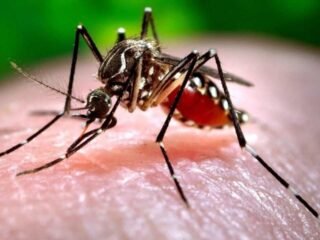New Delhi, 23 May 2025: A recent study published in JAMA Internal Medicine reveals that respiratory syncytial virus (RSV) infection may pose a higher risk of in-hospital cardiac events among adults aged 50 and older compared to influenza and COVID-19. Analyzing data from over 6,200 hospitalized patients with laboratory-confirmed RSV infection, researchers found that approximately 22% experienced acute cardiac events, with acute heart failure being the most prevalent.
RSV: Not Just a Childhood Illness Anymore
Traditionally considered a pediatric infection, RSV is now being recognized as a serious threat to older adults as well. The virus can cause respiratory distress and pneumonia, but this new research shines a light on its cardiovascular impact.
The study analyzed data from over 6,200 adults hospitalized with lab-confirmed RSV infections across the United States between 2014 and 2023. It found that 22.4% of these patients experienced acute cardiac events—a rate higher than those seen in patients hospitalized with influenza or COVID-19.
What Kind of Cardiac Events Were Observed?
Among the various complications, acute heart failure was the most prevalent, affecting about 15.8% of patients. Other events included:
- Acute ischemic heart disease: 7.5%
- Hypertensive crisis: 1.3%
- Ventricular tachycardia: 1.1%
- Cardiogenic shock: 0.6%
These events were not only more frequent but also more severe. Patients who suffered a cardiac event were more likely to require intensive care (25.8% vs. 16.5% in those without events) and had a higher mortality rate (8.1% vs. 4%).
Who Is Most at Risk?
The risk wasn’t evenly distributed. The study showed that people with preexisting heart disease were at significantly higher risk of complications. Roughly 33% of patients with cardiovascular disease developed acute cardiac events after RSV infection, compared to just 8.5% of those without such underlying conditions.
This suggests that the virus might act as a trigger for heart complications in people who already have compromised cardiovascular systems. Age, too, played a major role, with older adults being more susceptible to both RSV infection and its heart-related consequences.
How Does RSV Compare to Flu and COVID-19?
When it comes to respiratory viruses, influenza and COVID-19 have long been associated with heart complications like myocarditis and arrhythmias. However, RSV appears to pose a higher risk specifically for acute heart failure and ischemic events, particularly in elderly populations.
Another large-scale study from Denmark echoed these findings, revealing that older adults with RSV were more likely to be hospitalized for heart failure and ischemic strokes within two weeks of infection.
Why Is RSV So Dangerous for the Heart?
The exact mechanism is still under investigation, but researchers believe that RSV may cause inflammation in the blood vessels and cardiac tissue, increasing the likelihood of ischemia and triggering heart failure in vulnerable individuals.
Infections also increase metabolic demands and can strain the cardiovascular system, especially in people with already reduced heart function. Add to that the immune system’s response to the virus, and the perfect storm is created for cardiac complications.
What This Means for Public Health
The implications are clear: RSV is not just a seasonal flu-like virus for babies—it is a significant threat to older adults, particularly those with existing heart issues.
The availability of RSV vaccines for adults over 60 and pregnant women is a promising step forward. In light of this research, public health officials are urging those eligible to get vaccinated ahead of RSV season, which typically peaks between late fall and early spring.
How You Can Stay Safe
Here are practical ways to protect yourself or your loved ones:
Get Vaccinated: If you are over 60 or have underlying health conditions, talk to your doctor about the RSV vaccine.
Follow Hygiene Practices: RSV spreads via respiratory droplets. Wash your hands frequently, avoid touching your face, and wear masks in crowded indoor settings.
Monitor Symptoms Early: Cough, wheezing, fatigue, and shortness of breath should not be ignored—especially in older adults.
Manage Preexisting Conditions: Keep chronic illnesses like heart disease and diabetes under control, as they can amplify RSV complications.
Stay Informed: Watch for RSV outbreak updates in your region, especially during the colder months.
This study fundamentally changes the way we should view RSV. It’s no longer just a childhood concern—it’s a virus that can have serious cardiac repercussions in older adults, potentially more so than flu or COVID-19. As RSV becomes a focal point in public health discussions, prevention through vaccination and awareness will be key to protecting high-risk populations.
Don’t underestimate RSV—it’s more than a cold. It could be a heart threat in disguise.







